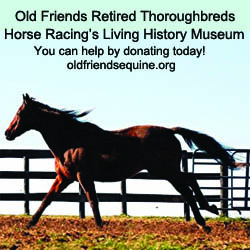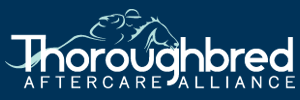Retire & Rehome
Whichever way we ride or however we are associated with horses, we can all agree that horse welfare and rescue is extremely important. Learn about these caring places in our Rehome section, where money and time can be donated to help horses find, or remain, in their forever home.
Many charity events help fund the good work of equine rescue organizations. Parties and auctions to benefit rescue are included in the Calendar of Events for Retire & Rehome.
Have an old friend to retire? Find a place where your horse can live the life of leisure in our Retirement section.
Do we need to add an event or rescue? Please use the useful feedback link and let us know!
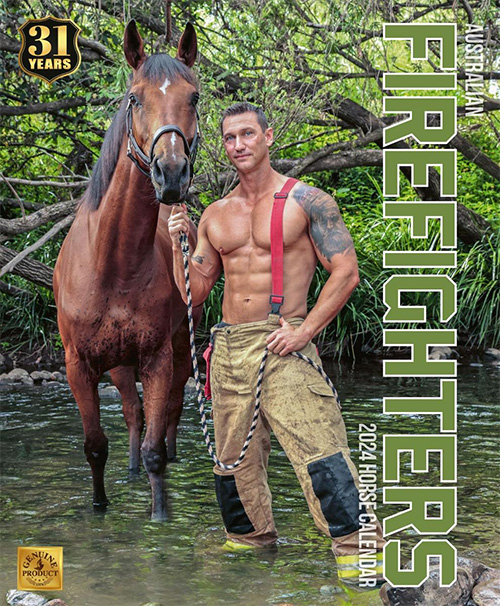
Australian Firefighters Calendar 2024 turns up the heat and promises a year to remember!
The wait is over…..the most popular calendar in the world is back! The highly anticipated 2024 Australian Firefighters Calendar has just been launched and is now in its 31st year of production. The annual photoshoot brings Australia’s favourite heroes and animals together to produce the worlds most iconic calendars.
Since its launch in 1993, the calendar has donated over 3.4 million dollars to charities across Australia. The calendar’s proud history of supporting animal refuges and Australian Wildlife in the past, will continue into the future. Australia’s Rural Firefighters and children suffering from Cancer will also once again benefit from donations.
The Australian Firefighters Calendar is found on the walls of supporters in over 90 countries around the world. The firefighters from the calendar are in hot demand to appear on some of the most popular TV shows and magazines around the world. From Germany to Taiwan, to the US and Japan, the firefighters from the calendar use their popularity to continue the message of conservation for Australian Wildlife.
Editions
Over 25 Australian firefighters have come together for the month-long photoshoot to make this years 6 editions. Firefighters from aviation, military and urban fire services have once again produced the most talked about calendar photos for the 2024 editions of the Australian Firefighter Calendar.
Each month of the 6 different calendar editions reveals a different firefighter and their heart-warming bond with some of Australia's most adorable animals. From cuddly koalas to playful kittens, these visuals capture the compassion that these firefighters stand for both in and out of uniform.
Due to the popular demand of the past editions, the Dog, Cat, Horse, Mixed Animal and Classic Calendars will be back. A new addition to the calendar collection for 2024 will be the ‘Hero’ Calendar. This edition depicts action shots of our handsome firefighters doing what they do best.
2024 AUSTRALIAN FIREFIGHTERS CALENDAR IMAGES
Photo credits: Australian Firefighters Calendar
Australian Charities
- The Queensland Koala Society
Donations from this years calendars will help support this organisation that relies solely on on public donations. The donation will be used to help sick and injured Koalas and get them back into their natural habitat as quickly and safely as possible. -
Kids with Cancer Foundation
Kids with Cancer Foundation provides financial assistance to families from funds held in trust that have been donated by the public through direct donations, fundraisers and their lotteries. Families that find themselves in financial stress resulting from their child’s cancer diagnosis can apply to access their funds to help with bill payments. -
Byron Bay Wildlife Hospital (BBWH)
Conceived and launched by vets Dr Stephen Van Mil and Dr Evan Kosack, Byron Bay Wildlife Hospital is a registered charity and not-for-profit company limited by guarantee. BBWH provides dedicated, expert veterinarian services to wildlife, free of charge. Their mission is to conserve, protect and ensure positive welfare outcomes for Australian wildlife through treatment, rehabilitation, research and education.
The licensed mobile veterinary hospital, affectionately named Matilda, operates from a custom-built semi-trailer, making it Australia’s largest Mobile Wildlife Hospital, and the only one of its kind in the world. Operating from its base near Byron Bay Australia, BBWH’s mobility enables it to be immediately deployed to a natural disaster to assist in the triage, assessment and treatment of injured, traumatised and displaced wildlife, anywhere in Australia. - Safe Haven Animal Rescue
Safe Haven Animal Rescue Inc (SHARI) is a not-for-profit, registered charity that operates in the South East Queensland region in Australia. They are a small group of volunteers working together to save, rehabilitate and rehome for both dogs and cats.
The 2024 Australian Firefighters Calendar will also be supporting the following organizations.
- Wildcare Inc
- Fauna Rescue of SA
- Native Animal Rescue
- CAVFA
- Queensland Koala Society
- Best Friends Felines
- All Breed Canine Rescue Inc
- Healing Hooves
- Safe Haven Animal Rescue
US FIREFIGHTERS
Due to the enormous popularity of the Australian Firefighters Calendar in the US, two firefighters were flown out to take part in the calendar photoshoot.
“I have had a love for firefighting ever since I was a kid visiting my dad at the station he worked at. The brotherhood and camaraderie was always something I strived for but never fully understood until I joined the fire service 6 years ago. That family atmosphere is exactly what I found when I was asked to be a part of the 2024 Australian Firefighters Calendar. I was able to firsthand see the amazing people, animals, and unique environment that Australia has to offer. Most importantly I had the opportunity to interact with the numerous charities and foundations that the calendar benefits and learn of the importance of conservation efforts in order to protect our wildlife and environment. We live on one shared planet and this is a message I am more than happy to take back to the States and share with my audience. And oh yeah, I almost forgot…ripped Firefighters with adorable animals. I think people might enjoy that as well.” Caden Troy - St. Lucie County Fire District, United States of America
JACOB HACKER: 30yr old Firefighter from America.
American firefighter, paramedic, actor and model born and raised in rural Ohio. One of my goals was before the age of 30 I wanted to be in the Australian Firefighters Calendar. When I was younger in my fire and medic career it began as a joke because I felt like I could never be physically capable or fit enough to be one of those men you see in the calendar. After 10 years of hardwork and dedication I reached out to the Australian Firefighters Calendar, to my surprise they were impressed by my journey and wanted me to partake in their calendar. This was a dream come true and one of the greatest honours of my life to be an American featured into an Australian Firefighters calendar for a good cause. Jacob Hacker - Willard Fire and Rescue Ohio, United States of America
STEVEN GIANNOPOLOUS: 30yr old firefighter from Canada.
Firefighting was my dream as a little boy. I remember playing with all my little fire truck toys pretending to respond to emergencies and being fascinated every time I saw a real-life fire truck ripping to calls. As I grew up, I realised that it's not superheroes that are doing this job but actual people. From That moment on I knew firefighting was what I wanted to do! I applied and went through all the rigorous tests and had the opportunity to become a firefighter at a really young age. It's been 9 years now and I haven’t looked back. One of the most dynamic and demanding jobs but also the most rewarding being able to serve your community and help people on the worst days of their lives” Steven Gionappilous - Ottawa Fire Service, Canada
US CHARITY PROJECT
To repay the support our U.S. fans have shown, the Australian Firefighters Calendar will continue to support U.S. charities for the third year in row.
The Rescue Rebuild program is a shelter renovation program of Greater Good Charities. This year the Florida Wildlife Project in Fort Lauderdale will receive support to rebuild their Tortoise Rehab enclosure.
As with all of our wildlife projects, the goal of these projects is to give the wildlife facilities the ability to better care for their animals and to increase their lifesaving capabilities.
Fostering the rehabilitation of the tortoise helps to protect a keystone species and the many other species that benefit from their survival. Many other animals use the old tortoise burrows for their own survival, so there are many benefits to preserving the gopher tortoise.
"Greater Good Charities is hugely grateful for the continued support from the Australian Firefighters Calendar! Funds raised from the calendar sales will support a renovation at a wildlife rehabilitation facility by our Rescue Rebuild program this November. Thanks to this generous donation, this facility will be able to care for more animals and protect endangered species that are vital to our ecosystem.” - Zach Baker, VP of Pet Programs, Greater Good Charities
How to purchase a calendar in the US
We now ship the 2024 Australian Firefighters Calendar from Dallas, Texas for our online US fans www.australianfirefighterscalendar.com In addition to this, the calendars will be available in 600 kiosk locations through Calendars.com.
Read more: Australian Firefighters Calendar 2024 Turns Up the Heat
Sizing John was a force to be reckoned with over fences having notably won three Gold Cups. Since retiring he has been retrained as a riding horse by Kate Harrington who assisted in his training. Kate tells us how he is getting on as a show horse and what his targets are.
Orthopedic surgeon Dr. Alan Ruggles is featured in this episode of StallSide. In this fascinating discussion, Dr. Ruggles, delves into the intricacies of equine fracture repair, shedding light on the latest advancements and techniques in the field. Explaining complex concepts in an easily understandable manner, Dr. Ruggles guides us through diagnosing and treating equine fractures, covering various types of fractures and their unique challenges. roodandriddle.com
Read more: Breaking Boundaries in Equine Fracture Repair with Dr Alan Ruggles (56:44)
As an education platform who also supports fifteen rescue horses, we need some help for a while until we grow our platform or get sponsors for them permanently.
Got 64 bales of hay delivered today which will last for 18 days:)
If you love horses, check out our website at www.equitopiacenter.com
Read more: Equitopia Center - 64 Bales of Hay Arrived today (0:37)
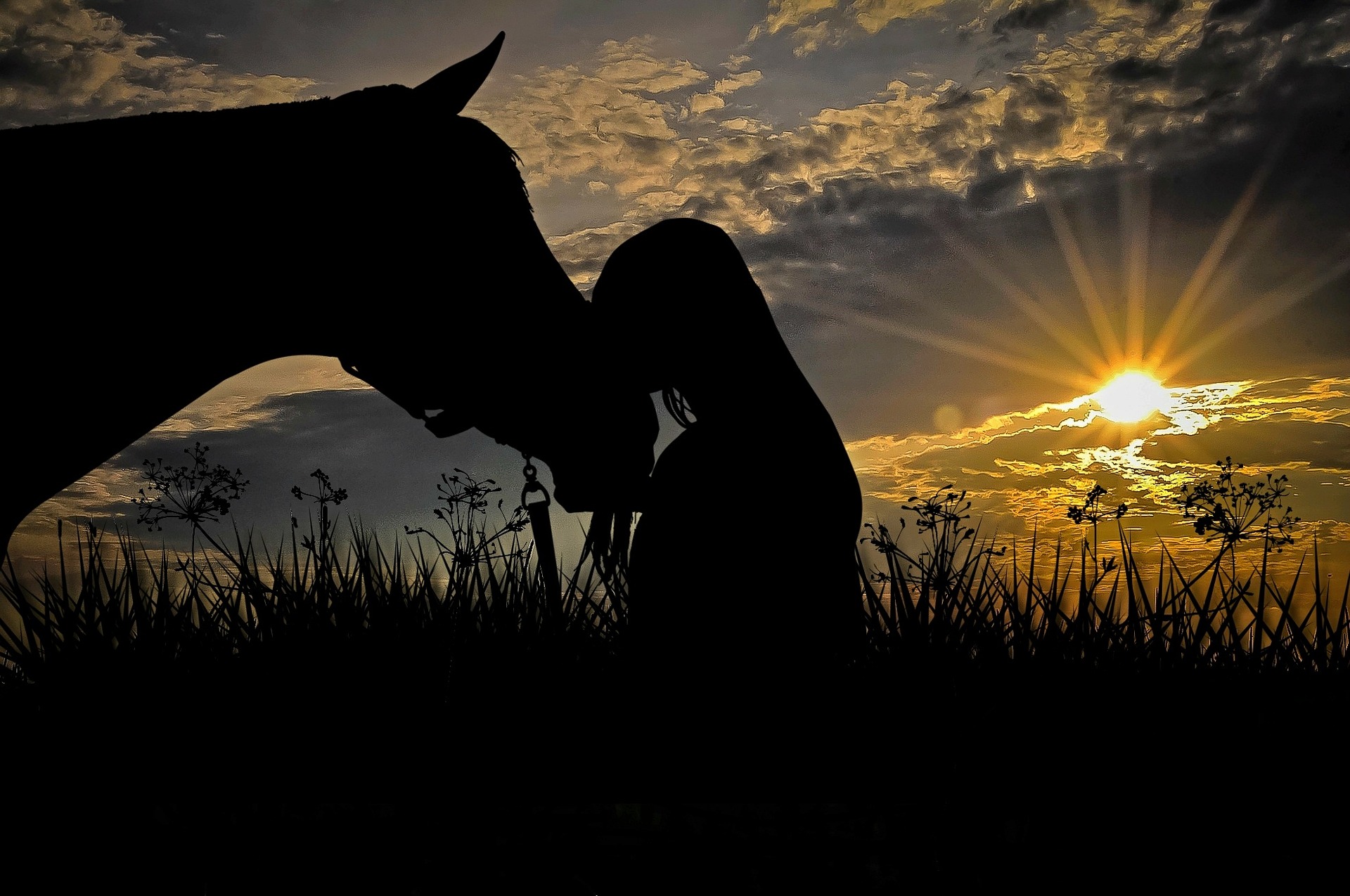
by Pamela Zielinski
Since this is a hot topic and extremely emotional, especially when dealing with large, relatively intelligent animals aka horses, I thought I would bring my 58 years of experience with horses to the table and hopefully give people some peace with having to make the hard choice. And it IS a hard choice, no matter how many times you have had to make it, no matter what the reason.
It IS hard.
Many people feel that they are playing God and that things are better left to nature as to whether the animal in question survives or not. For some, that may be true, but in my experience, if an animal has no chance, or even very little chance, of regaining some semblance of comfort and mobility, you, as a steward of this animal, have a responsibility to relieve their discomfort.
Sometimes the only way to do that is to euthanize them. I also believe that sometimes the biggest obstacle in the way of that happening is, unfortunately, “what will people think?”
My answer to that question is “who cares what people think??” They are not the stewards of this animal. They are not the ones who have to see the animal in their backyard, struggling to make it to the water trough once or twice a day. They are not the ones who have loved this animal for years or maybe even only for days or weeks as is the case with many rescue animals.
They are not the ones (and this may sound a bit callous to some) who have to pay the vet bills for multiple calls and expensive medication, trying to keep the animal in question from hurting. YOU. YOU are the one charged with making the hard decision so IMO, tell everyone who questions your decision to F*** off and let you do what's right without guilt.
I tell everyone that horses are not people. A lot of horse owners and especially NON horse owners have a hard time grasping that concept. Let's say you have a horse who has a broken left hind cannon bone from a pasture accident. It will take many months to heal if it's even possible.
A person who has a similar injury, say a broken tibia from an automobile accident will be in the same boat. It will take months to heal. Healing will be painful, as will rehab once the healing process is complete. The difference is that you can TALK to a human.
You can tell them that it will take many months for the bone to heal and many more to rehab from it. They can understand you and have something to look forward to. With a horse, that's not possible. All a horse knows is that they hurt TODAY. They don't see tomorrow as people do.
Yes, you can heal lots of injuries even though they hurt for a while, but I'm talking about major injuries that will take many months of healing and rehab. I'm not saying that the typical bowed tendon needs euthanasia, on the contrary, most bowed tendons heal just fine and actually become what we in the horse world know as a blemish. A scar. Something that is a non issue except for the look of it, which horses also do not give a rat's a** about.
Beyond injuries, we get to the issue of elder care and when to make that decision. In 58 years, this has come up more times than I care to remember and it's always, always difficult. IME, most senior horses are well loved members of the family. No one wants to kill Grandma just because she's old, but we need to remember the inability of horses to understand pain.
And as they get old, pain is a constant, daily recurrence that can make life miserable. Over the years, I have developed a threshold and my threshold is always the same. When a horse is having more bad days than good, it's time. Do not fall into the trap where you are making excuses for doing what needs to be done. Face the fact that you might be keeping the horse with you for your own benefit, rather than theirs. In my opinion, the horse must always come first.
Economics
The last issue I want to touch upon, and this is the most sensitive, is economics. It's expensive to treat serious injuries or illnesses in horses. At some point, you, as the owner, have to decide how much you can afford to spend. I've heard it all, “if you can't afford to treat them, you can't afford to have them”, “put it on your credit card”, the list goes on.
I cannot tell you the number of people that I have known over the years who lost a horse because they couldn't afford to treat it as the vet suggested. It's heartbreaking and I will NEVER judge someone who can't come up with 14-15 THOUSAND dollars for colic surgery on their best friend.
Oh oh, oh there's insurance! Yes there is, but it never covers everything. There's always a LOT left over. I have seen many people, some who are my favorite owners of all time, who couldn't pay and had to decide on euthanasia.
So we've covered everything I could think of, what's left? My synopsis is that you are charged as an owner of one of these wonderful creatures with doing what is the best that you can do for them at the time. Whether, injury, age, economics, whatever is causing you to consider their fate, please don't let your own feelings get in the way.
Do what is right for the horse in the circumstances you are presented with. Don't ever forget that horses are not people. They are not “afraid to die”. If it seems so, it is just instinct kicking in and what you are doing can be the biggest and best gift you can ever give them.
For resources, see our Rainbow Bridge section.
There are more interesting articles in our section on Retire & Rehome.
Are you interested in promoting your business or sharing content on EIE? Contact us at info@equineinfoexchange.com
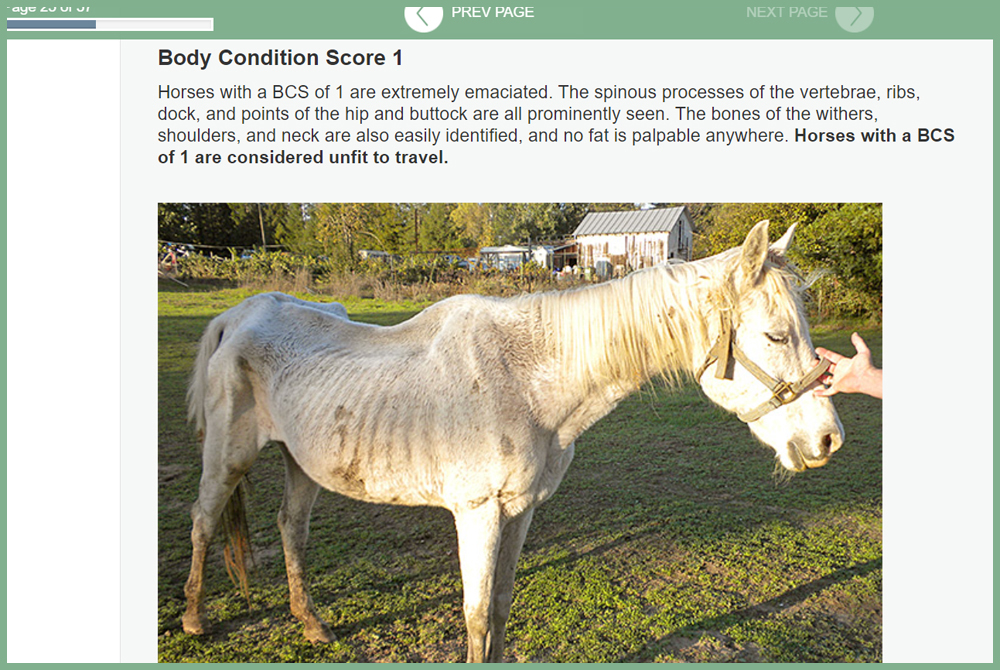
By Nancy Thomas
It is hard to be passionate about something about which you are not aware. “Out of sight, out of mind” is a very true adage, and we are all susceptible to that scenario. All of us, including me. Therefore, it was with complete naiveté that I started down a rabbit hole a week ago…
I maintain my veterinary license and certifications for the purpose of maintaining my own animals. I don’t practice and I have no intention of returning to practice. Nevertheless, to maintain my certifications, I must complete Continuing Education Units on a yearly basis. And so it was that I found myself choosing which 6 modules from the USDA I would complete to meet my requirements.
An important note… it says in this article that “The modules are also open to the general public.” Therefore, while I may be raising some eyebrows in this series, I am not breaking any rules when I share screenshots of the modules.
I decided to complete the module describing the USDA Regulations pertaining to horse slaughter. I honestly can’t tell you why I chose that, except that I usually complete the module related to the interstate movement of horses. The latter module pertains to me on a regular basis! I think I was expecting some crossover between the regulations that pertain to those of us traveling with horses and the rules that applied to the interstate movement of horses destined for slaughter.
The first disconnect
My first “Say WHAT?” moment came when I reached the bottom of Page 7 of the module. The first few pages of the module described the evolution of the banning of horse slaughter in the United States, addressed the problem of “unwanted horses,” and provided some statistics. I will address those topics in future blogs in this series.
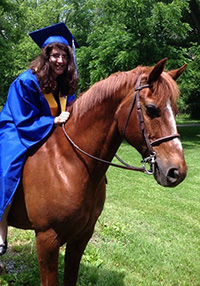
by Gabby Roselli
Rocky, I do not know when he was born, or what he did before I met him, but in November 2007, he became my pony, my companion, and my very best friend through the best and worst life has offered. For these past 13 happy years together, we shared a rare, special bond that only happens once in a lifetime. To say Rocky was the best horse feels like an understatement, every girl calls their horse ‘the best horse’. But King Fluffy was, he really was the real deal. A genuine king among ponies, a champion.
I could always count on Rocky, no matter what strange or exciting adventure I took him on. The world was ours for the taking, so we rode just about everywhere from the fields and forest of terrace mountain, to our daily strolls into town to visit friends, the gas station, the local museums, the library, and where ever else we felt like going that day. Didn’t matter what time of day, what the weather was outside, or if we even wore tack or not, we just went for it because I never had a second thought. He always took care of me; he shied at nothing, and rarely questioned my commands, even when I made an error in judgement, and I made many errors.
That’s not to say Rocky didn’t have strong opinions though, he was definitely a stubborn pony at heart! Anyone who has cared for him knows he firmly believed that medicine is poison, and he always knew all the tricks since I first got him. Applesauce, molasses, you name it, he’s snubbed it. Don’t even think about that syringe either, “I’ll just become a giraffe,” would say Rocky, and though he was not very tall, most everyone is taller than me. The struggle was real.
- The 30-Year Anniversary of the World's Most Loved Calendar
- The Saratoga Farm That’s Helping Both Horses and Humans
- UEF-Charity Foundation - Heartbreaking Stories About Horses During the War in Ukraine
- Australian Firefighters Calendar - Merry Christmas
- Australian Firefighters Calendar - Supporting Horse Rescue
- Ex-Racehorses Prove They Can Do It All Off The Track
- Forthegreatergood is 2021 Thoroughbred Makeover Champion
- Thunderous Affair is 2020 Thoroughbred Makeover Champion
- Eye Luv Lulu – Home Again After an Illustrious Career
- When ‘Free To A Good Home’ Is Anything But







